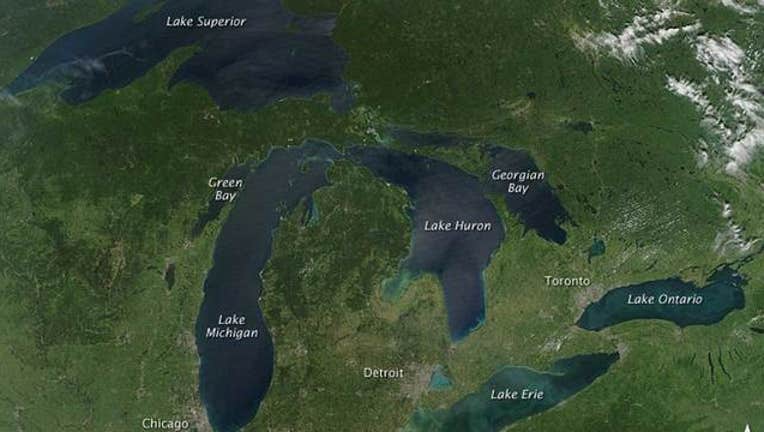Lakes Superior, Ontario and Erie break record water heights

(FOX 2) - Three Great Lakes have reached record water heights.
Seen as an inevitability for months, the U.S. Army Corps of Engineers announced Wednesday that Lake Superior, Lake Erie and Lake Ontario all set new records in water heights.
In 101 years of record keeping, those three lakes, as well as Lake St. Clair have never registered monthly average water levels as high as they are now. The measurements are striking, especially considering the low levels the lakes were at only a few years ago.
"Over the past two decades, water levels on the Great Lakes have gone through an unprecedented period of persistent below-average conditions, a record-setting rate of water level rise and, now, a series of record-setting high levels," said Hydrologist Drew Gronewold. "These changes are a response to unusual combinations of extreme lake evaporation, persistent increases in the magnitude and intensity of precipitation events, and intermittent outbursts of cold arctic air.
The cause of the high water levels is tied to months of wet weather and a significant amount of snowpack in the Great Lakes basin. Flood events in southeast Michigan aren't always tied to the Great Lakes, but often they are.
As areas already saturated with water receive more precipitation during large rain events, that rain has nowhere to go. That leads to water damage in houses and roads that aren't drivable.
RELATED STORIES:
High water levels in Lake St. Clair affecting Jobbie Nooner, the Midwest's largest boat party
High water levels plaguing metro Detroit, Harrison Township roads underwater
St. Clair Shores' boaters grip with rising waters, submerged docks
High water levels have proven to be primary sources for many Michigan communities and events - including those in St. Clair County, Harrison Township and even last June's Jobbie Nooner.
Several experts with the University of Michigan weighed in on the news. Ricky Rood, who teaches climate and space sciences and engineering said it's going to be tough developing management and planning for the following years.
“The climate is at the beginning of decades of rapid change. This will challenge our ability to manage water levels as well as the policy and practices we have developed for the built environment and natural systems," Rood said. "This is not our parent's climate; it is not even the climate of my childhood."
Richard Norton, who studies urban and regional planning said the natural processes of erosion that Great Lakes beaches experience are going to be amplified and sped up. Many coastal communities are going to need to start making decisions regarding beach properties.
“At some point, coastal communities may face the difficult decision of whether to protect the beach or protect the beach house," Norton said. "It may not be possible to do both."

